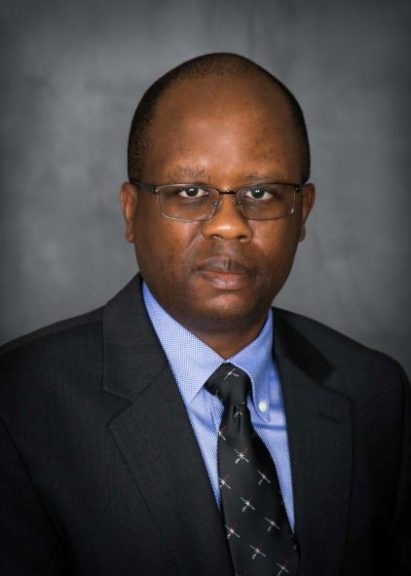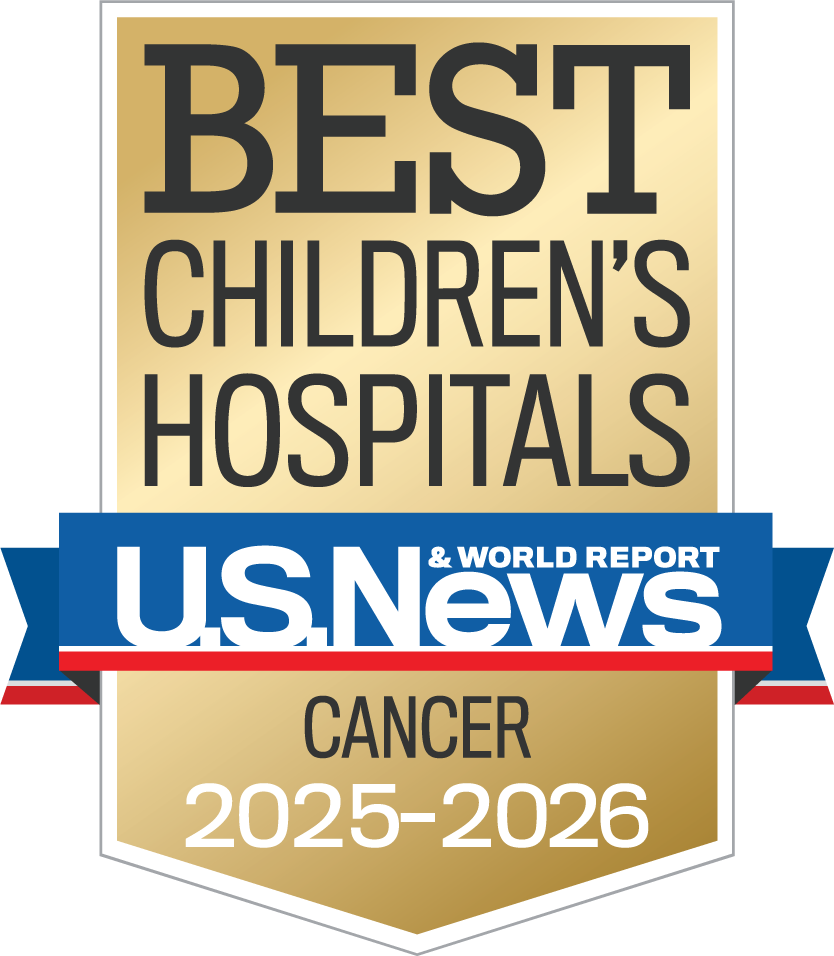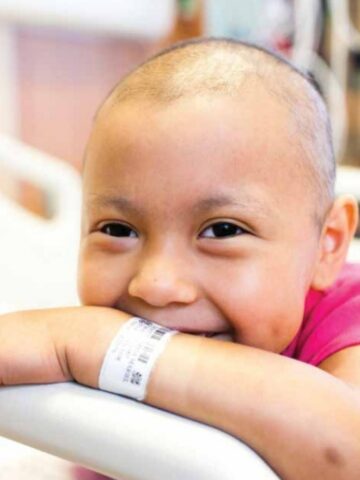The Neuro-Oncology Treatment Program at the Hyundai Cancer Institute at CHOC is doing more than providing the most advanced care for pediatric brain tumors — it’s also helping to shape the future of personalized medicine and surgical innovations.
CHOC offers a full range of standard treatments for brain tumors, as well as personalized therapies for many tumor types, such as medulloblastomas, based on genetic subtyping. Experimental treatments are available through Children’s Oncology Group and other consortium and industry-driven clinical trials. Some of these studies — including a trial developed by a CHOC neuro-oncologist to investigate a vaccine for diffuse intrinsic pontine glioma — are part of CHOC’s robust early-phase clinical trials program, according to Dr. Chenue Abongwa, pediatric neuro-oncologist at CHOC.

CHOC also partners with some of the country’s foremost healthcare institutions, including Mayo Clinic, to apply the latest genomic sequencing and molecular studies in studying each individual tumor.
When a patient presents with a brain tumor, a wide range of specialists are involved from the beginning. “We have a multidisciplinary neuro-oncology tumor board that includes neurologists, neurosurgeons, neuroradiologists, radiation oncologists, pathologists and a neuro-oncologist, and we involve other specialists as needed,” says Dr. Abongwa. “This expertise allows us to select the treatment likely to be the best option for each child while minimizing the risk of side effects.”
Each patient at CHOC is treated via an individualized, precision medicine approach. When surgery is necessary, CHOC has four highly experienced, board-certified pediatric neurosurgeons who can apply some of the most advanced surgical capabilities. “We have the latest in surgical navigation, and we partner with neurologists at CHOC to offer surgical neuromonitoring to track certain nerve potentials during resections,” says Dr. Suresh Magge, medical director of neurosurgery at CHOC and co-medical director of the CHOC Neuroscience Institute. “If we’re operating near the brain stem, it’s important to know if there’s potential for damage in surrounding structures.”

Several of the surgical therapies CHOC offers are minimally invasive alternatives to craniotomy. One example is endoscopic surgery, which may be appropriate for tumors located in the ventricles. Neurosurgeons can visualize and resect these tumors using an endoscope inserted through a small incision.
“Certain tumors, especially those located deep in the brain, are amenable to laser interstitial thermal therapy (laser ablation),” Dr. Magge says. “This has revolutionized the treatment of certain types of lesions. We can insert a catheter through a small incision down to the deep part of the brain and ablate the tumor without harming surrounding structures. A ROSA™ (robotic stereotactic assistance) robot allows us to insert the laser with a high degree of precision. Patients experience minimal blood loss and typically go home within a day.”
Once treatment concludes, patients ultimately enter the Neuro-Oncology Treatment Program’s longstanding late effects program. This multidisciplinary program provides long-term follow-up of patients and connects them with specialists who can treat endocrine, neurocognitive, psychosocial and other side effects of treatment.
“For some tumors, such as medulloblastomas, we’ve reached the point where we’re achieving good rates of cure, as high as 80% or more,” Dr. Abongwa says. “So now we’re focused on minimizing the long-term effects of treatment. Most institutions don’t have a strong, long-term follow-up program for pediatric patients. Over time, our program has become quite robust and multidisciplinary. That’s another area of benefit that we offer our patients. We’re a child- and family-focused institution. That focus is evident in all the programs and services that are available to our patients.”

CHOC Hospital was named one of the nation’s best children’s hospitals by U.S. News & World Report in its 2025-26 Best Children’s Hospitals rankings and ranked in the cancer specialty.




